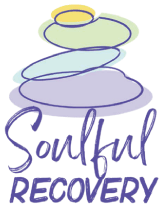Introduction
In our fast-paced world, learning how to manage our emotions effectively has become more crucial than ever. Emotional regulation—the ability to understand, manage, and respond to our emotional experiences in healthy ways—is a fundamental skill that impacts every aspect of our lives, from personal relationships to professional success and overall mental health.
Understanding Emotional Regulation
Emotional regulation refers to the processes by which individuals influence which emotions they have, when they have them, and how they experience and express them. It’s not about suppressing emotions or maintaining constant positivity, but rather about developing the skills to navigate emotional experiences in ways that serve our well-being and goals.
Research shows that the intensity of emotional experience is a crucial factor determining the choice of regulation strategy, highlighting how our emotional responses naturally guide us toward different coping mechanisms.
The Critical Importance of Emotional Regulation
Effective emotional regulation is deeply connected to our overall mental health and life satisfaction. When we struggle to manage our emotions, we may experience difficulty maintaining healthy relationships, challenges in decision-making and problem-solving, increased risk of anxiety and depression, problems with impulse control and addictive behaviors, and reduced resilience in facing life’s challenges.
The connection between emotional regulation and psychological well-being cannot be overstated. Building psychological resilience requires developing the capacity to manage difficult emotions effectively. This skill becomes even more critical for individuals in recovery or dealing with mental health challenges, where emotional dysregulation often plays a significant role in relapse and setback patterns.
Core Strategies for Developing Emotional Regulation Skills
Mindfulness and present-moment awareness form the foundation of emotional regulation. This involves observing your emotions without immediately reacting to them, creating space between the emotional trigger and your response. Cognitive reappraisal is another powerful technique that involves changing how you think about a situation to alter its emotional impact, transforming challenges from threats into opportunities for growth.
Healthy expression and communication prevent emotional buildup by finding constructive ways to process feelings through journaling, art, or honest conversation. Self-compassion plays a crucial role by treating yourself with kindness during difficult emotional moments rather than harsh self-criticism, creating a supportive internal environment for healing.
Building Resilience Through Emotional Awareness
The journey of emotional regulation is closely tied to developing resilience. Building resilience involves cultivating the capacity to bounce back from adversity, adapt to change, and grow stronger through difficult experiences. This process requires consistent practice in recognizing emotional patterns, understanding triggers, and developing healthy coping mechanisms.
Gratitude practice has emerged as a particularly powerful tool for emotional regulation. Scientific research on gratitude demonstrates its profound impact on emotional well-being, helping individuals shift focus from negative emotional states to appreciation and positive perspective. This practice doesn’t ignore difficult emotions but provides a balanced framework for processing them.
The Role of Professional Support and Evidence-Based Treatment
While developing emotional regulation skills is something everyone can work on independently, professional support can be invaluable, especially for those dealing with trauma, addiction, or mental health challenges. Research with youth emphasizes that emotional regulation is essential for rational thinking and decision-making, and has a significant impact on mental well-being.
Evidence-based therapeutic approaches provide structured methods for developing emotional regulation skills. These approaches combine scientifically validated techniques with personalized treatment planning, ensuring individuals receive the most effective interventions for their specific needs and circumstances.
Practical Steps for Your Emotional Regulation Journey
Beginning your journey toward better emotional regulation starts with self-awareness. Notice your emotional patterns and triggers throughout the day, keeping a simple journal of when strong emotions arise and what preceded them. Practice breathing techniques regularly, as deep breathing can activate your body’s relaxation response and provide immediate emotional relief.
Developing a support network of people who understand and support your emotional growth is essential. This might include friends, family members, support groups, or mental health professionals. Consider professional help when needed, as therapies like CBT, DBT, and EMDR can provide structured approaches to emotional regulation that complement your personal efforts.
Creating Sustainable Change
Consistency is key in developing emotional regulation skills. Like any skill, emotional regulation improves with regular practice rather than sporadic intense efforts. Start with small, manageable changes and gradually build your capacity over time. Remember that setbacks are normal and part of the learning process rather than signs of failure.
Focus on progress rather than perfection. Emotional regulation isn’t about achieving perfect emotional control—it’s about developing healthier relationships with your emotions and building resilience for life’s inevitable ups and downs. Each small step forward contributes to long-term emotional well-being and life satisfaction.
Moving Forward with Confidence
Mastering emotional regulation is a lifelong journey that offers profound rewards for your mental health, relationships, and overall quality of life. Whether you’re seeking to improve your daily emotional experience or working through more significant challenges, the skills of emotional regulation provide a foundation for lasting positive change.
The path to better emotional regulation begins with a single step: the decision to approach your emotions with curiosity, compassion, and commitment to growth. Every small effort you make toward understanding and managing your emotions contributes to a healthier, more fulfilling life. Remember that seeking support, whether through professional resources or peer connections, is a sign of strength rather than weakness in this important journey.

